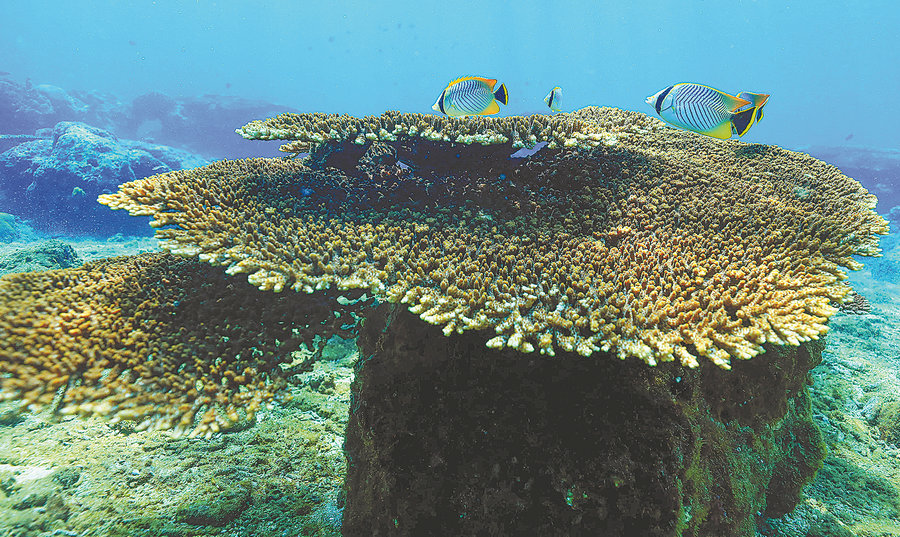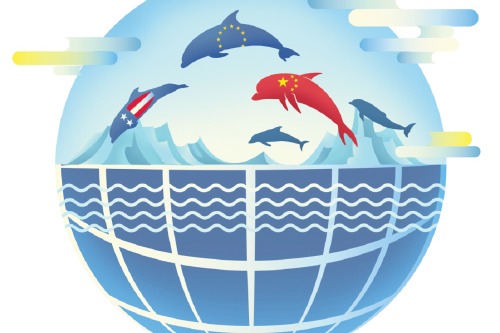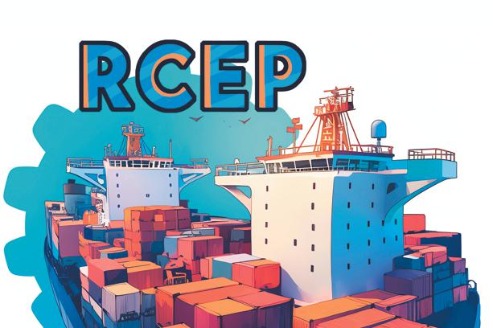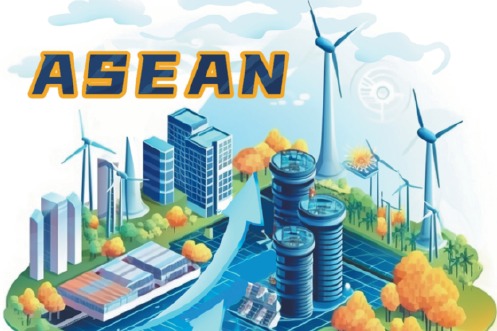Plastic post blindly politicizes blame game


Although it is called Truth Social, the social media platform often fails to live up to its billing. A case in point is a recent post by the US leader in which he slammed China over pollution in the Pacific Ocean referring to it as "a gift from China".
The post included photos showing serious plastic pollution along coastlines but provided nothing to support the claim that it came from China.
To begin with, any critics of the environmental pollution or carbon emissions of developing countries, particularly those of developed economies, should recognize that the developed countries should also be held accountable for that.
It is the less-developed economies that have been footing the bill for the clean environment, low emissions and high living standard of their developed counterparts, which dominate the top of the global value chains.
That explains why it is a global consensus the rich countries are obliged to provide technology and funding assistance to the less-developed countries to help them control their carbon emissions. It should also be the same case for the developed countries to help developing countries treat their pollution, particularly the pollution that is caused by the developed countries transferring their environmentally costly production to developing countries.
It is easy to point fingers of blame at the Global South countries for polluting the ocean and the air, but those doing so should be reminded that it has just been a few decades since the rich countries bid farewell to their contaminated soil, choking smog and toxic water by offshoring their polluting manufacturing.
China is a firm advocate for and an active participant in protecting the marine eco-environment, which is vital to its goals of building a beautiful China and being a strong maritime country.
Over the years, China has given priority to eco-environmental conservation and pursued systematic governance. It has coordinated development and protection efforts, and supported high-quality development with high-level protection, striving to build a marine eco-environment of harmonious coexistence between humans and the ocean.
Thanks to these endeavors, China's marine eco-environment has shown overall improvement, with a marked increase in the capacity of its ecosystem services and functions in certain sea areas, according to a white paper the State Council Information Office released last year.
China adopts a holistic approach to protecting the marine eco-environment, attaching equal importance to development, protection, pollution prevention and control, and restoration. It has improved the management of the marine eco-environment through land-sea coordination, coordinating protection work for rivers and seas, mountain and sea areas, onshore and offshore areas, and upstream and downstream river basins.
China has established a mechanism for collaborative protection, governance, supervision, and law enforcement across different regions and departments, in order to create a comprehensive system for governing coastal areas, river basins, and sea areas.
The country has also placed marine eco-environmental protection under the strictest systems and laws. And it has strengthened its innovation in marine eco-environmental protection technologies, monitoring and evaluation, and institutions and mechanisms.
China has demonstrated its commitment to the health of the world's oceans by actively promoting international cooperation in protecting the marine environment, and faithfully fulfilling its responsibilities and obligations under international conventions.
In particular, China has issued guiding documents, such as the Directives on Further Strengthening Plastic Pollution Control and the Action Plan for Plastic Pollution Control during the 14th Five-Year Plan (2021-25) Period, to address the issue of marine plastic litter at its source.
Notably, the Blue Circle project, a new model of marine plastic waste management initiated by China's Zhejiang province, stood out from 2,500 applicants globally to win the United Nations' 2023 Champions of the Earth Award, the world body's highest environmental honor.
Following the principles of mutual trust, mutual assistance, and mutual benefit, China champions the concept of a maritime community of shared future and promotes international cooperation in marine eco-environmental protection.
Like other common causes, such as cyberspace governance and greenhouse gas emissions control, marine environment protection should be a field of mutual learning, mutual assistance and mutual understanding rather than an extended arena for geopolitical games.


































